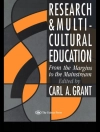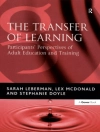A new way of thinking about the climate crisis as an exercise in delimiting knowable, and habitable, worlds
As carbon dioxide emissions continue to rise, Earth’s fragile ecosystems are growing increasingly unstable and unpredictable. Horizon Work explores how climate change is disrupting our fundamental ability to project how the environment will act over time, and how these rapidly faltering predictions are colliding with the dangerous new realities of emergency response.
Anthropologist Adriana Petryna examines the climate crisis through the lens of “horizoning, ” a mode of reckoning that considers unnatural disasters against a horizon of expectation in which people and societies can act. She talks to wildfire scientists who, amid chaotic fire seasons and shifting fire behaviors, are revising predictive models calibrated to conditions that no longer exist. Petryna tells the stories of wildland firefighters who could once rely on memory of previous fires to gauge the behaviors of the next. Trust in patterns has become an occupational hazard. Sometimes, the very concept of projection becomes untenable. Yet if all we see is doom, we will overlook something crucial about the scientific and ethical labor needed to hold back climate chaos. Here is where the work of horizoning begins.
From experiments probing our planetary points of no return to disaster ecologies where the stark realities of climate change are being confronted, Horizon Work reveals how this new way of thinking has the power to reverse harmful legacies while turning voids where projection falters into spaces of collective action and recoverable futures.
Circa l’autore
Adriana Petryna is Professor of Anthropology at the University of Pennsylvania. Her award-winning books include
When Experiments Travel: Clinical Trials and the Global Search for Human Subjects and
Life Exposed: Biological Citizens after Chernobyl (both Princeton). She lives in Princeton, New Jersey.












